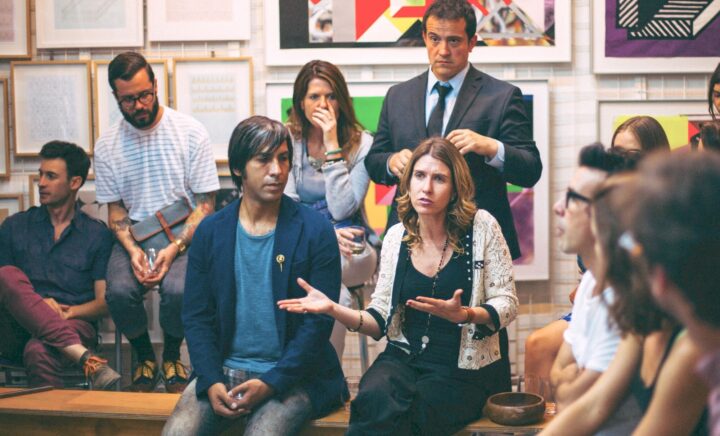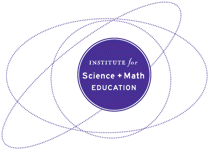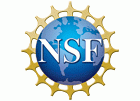How can STEM education leaders move with community towards culturally affirming and sustaining practices?

- Leaders must reflect on their cultural identities. School Leaders should form leadership teams to help them learn the community’s cultural ways of knowing.
- District Staff & PD Providers should map assets to identify community strengths and support change initiatives. Local resources, like cultural centers, can help co-design and ground PD in cultural values and knowledge.
- Teachers must examine how they center students’ histories, identities, values & knowledge. Strong relationships with students and families can improve climate, curriculum, assessments, instruction, and communication.
Society has inherited and perpetuated a public education system that limits possibilities and reproduces inequities based on identities—including race, ability, and gender. The current system ignores relevant research about what students need to thrive in STEM. STEM education leaders must take up affirming practices that connect to students’ backgrounds and sustain students’ cultures and languages, intentionally challenging accepted practices across decisions and structures. It is imperative that leaders at all levels (local, regional, state, federal) work with communities to support and meaningfully build upon the cultures and histories of students and their families.
Authors:
By Doug Paulson, Rae McEntyre, Billie Ennes, Megan Schrauben, Jill Griffin, Megan Coonan, & Hillary Barron | August 2023
Reflection Questions
- How much time have school leaders spent with community members engaged in culturally sustaining professional learning?
- Which community members and groups participate in decision making? Are they positioned as lateral partners? What barriers exist for those not participating?
- Who benefits or does not benefit from the policies, practices, systems, and/or structures currently in place?
- What data is used to monitor implementation of culturally affirming and sustaining practices? How is it collected? How are impacts tracked? How are benefits sustained? How are direct or unintended negative impacts on students mitigated and addressed?
Things to Consider
- Cultural pedagogies have a long history. Frameworks such as culturally relevant and culturally responsive pedagogies have distinct histories and nuanced definitions that set them apart from culturally sustaining pedagogies. However, all three frameworks center the importance of culture in student relationships and learning.
- Cultural identities are intersectional. Every system needs to consider approaches that specifically attend to the intersection of student, family, and community cultural identities and interests. Every effort should be focused on a co-designed model that allows students and families to bring their ways of knowing and sensemaking to the forefront.
- Students and families are culturally complex. Recognizing the complexities of the community is vitally important to teachers and administrators being effective in their jobs, to students being socially and academically successful, and to the roles schools play in society. Valuing language, cultural identities, traditions, and other community assets is an essential way to change pervasive deficit mindsets. Intentional confrontation, elimination, and re-humanization of these deficit views includes reframing how we talk about students, families, and communities—so all are able to thrive in relationship with one another.
- A Note on Culture: Culture is fluid rather than static—it changes all the time, in subtle and tangible ways. Culture is present even when the particular dynamics or practices affecting an interaction are not obvious. Trying to pinpoint particular dynamics can lead to reductive thinking.
Attending to Equity
- Attending to culture through diverse representation in curriculum adaptation is one step, but not enough to honor the unique cultural gifts students bring to the table. Culturally affirming and sustaining practices at every level of education are necessary to make STEM education more inclusive, accessible, and joyful.
- Co-designing learning structures and professional development with community can bring in diverse expertise and ground STEM learning in local cultural values and knowledge.
- Seeing students as experts in their own cultures, and cultivating trusting, equitable partnerships with families and local community members can further strengthen the foundation for this work.
Recommended Actions You Can Take
- Read and reflect on research regarding school and community relations.
- Critically examine district structures and policies (e.g., representation in instructional materials, special education, or giftedness programs; disciplinary measures; truancy; dress code) to identify underlying bias. Leaders can work with families and local stakeholders—through co-design, committees, and leadership/liaison roles—to reimagine authentic family engagement that transforms policies and practices. Create regular opportunities for education leaders and community leaders/members to learn from each other and plan together to help redistribute power.
- Use an Equity Audit to look at school and district data. Delving deep in such information can help identify specific needs and action steps for moving forward. Use an Equity Magnifier tool to center cultural equity in decision-making practices. Ask intentional questions focused on the data gathered during an equity audit.
- Provide professional learning opportunities for teachers and administrators on strategies to center culturally sustaining instruction and culturally affirming materials.
ALSO SEE STEM TEACHING TOOLS
STEM Teaching Tools content copyright 2014-22 UW Institute for Science + Math Education. All rights reserved.
This site is primarily funded by the National Science Foundation (NSF) through Award #1920249 (previously through Awards #1238253 and #1854059). Opinions expressed are not those of any funding agency.
Work is licensed under a Creative Commons Attribution-ShareAlike 4.0 Unported License. Others may adapt with attribution. Funded by the National Science Foundation (NSF). Opinions expressed are not those of any funding agency.


 Email Feedback
Email Feedback


